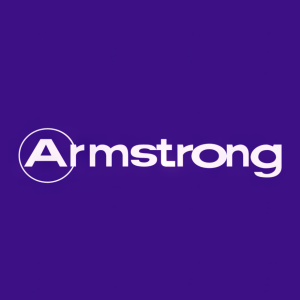Returning Workers Seek Workspaces That Address More Than Safety
Armstrong World Industries (NYSE:AWI) released the 2021 Pulse Point Occupants Survey, revealing evolving employee expectations for post-pandemic workspaces. Key findings include that 86% of respondents wish to feel safe in their work environment, 83% expect adaptability to future events, and 84% prioritize well-being. The trends emphasize the need for holistic design approaches that foster resilience and health. AWI's commitment to sustainability and creating environments that support well-being is evident through their 2030 goals, aligning with the rising demand for healthier spaces.
- 86% of respondents expect to feel safe in their workspace, indicating a strong demand for safety measures.
- AWI's survey reveals a clear shift towards designing adaptable workspaces, enhancing market relevance.
- The commitment to sustainability and healthier environments aligns with current market trends and consumer preferences.
- None.
Insights
Analyzing...
2021 Pulse Point Occupants Survey Reveals Desires for Spaces Fit for Sustainability and Personal Well-Being
LANCASTER, Pa., April 15, 2021 (GLOBE NEWSWIRE) -- Employee expectations of post-pandemic indoor workspaces go beyond a “return to normal” and demonstrate a desire for spaces that put people in a better place, with an eye toward spaces that are more responsive to an ever-adapting world, according to a new survey conducted by Armstrong World Industries, Inc. (NYSE:AWI).
The survey “Making Space for A Resilient Future” revealed six trends that point to a need, and an opportunity, to approach the design of indoor workspaces more holistically, beyond merely fixing pandemic-related health and safety concerns.
Among the findings:
86% of respondents expect to feel very or somewhat safe in their workspace when they return to work.83% of respondents expect to feel that their workspace will be prepared and adaptable for future events such as another pandemic or the changing climate.84% of respondents expect to feel that their workspace will be an environment which is supportive of the well-being of people.
The survey comes as companies across the country, including Amazon, Duke Energy, Facebook, and Microsoft have announced total or hybrid returns to work in the coming months and into the fall.
Armstrong, a leader in the design and manufacture of innovative commercial and residential ceiling, wall and suspension system solutions, conducted the online survey of 1,000 U.S. workers who typically work in indoor environments in February 2021. It explored employee feelings about and perceptions of work environments at offices, schools, and healthcare facilities as a result of what has been experienced due to the COVID-19 pandemic.
The findings are reflective of the pandemic’s influence in heightening awareness and understanding of the importance and interconnectivity of healthy environments and one’s own personal environment. These themes are echoed in new 2030 commitments from AWI to cultivate thriving environments for employees and communities, more actively meet demands for healthier, circular products, and do more with less to preserve and protect the planet’s resources.
“Attitudes of returning workers are clearly at an important inflection point,” said Mark Hershey, senior vice-president, and executive sponsor for sustainability at AWI. “As we work with leaders in architecture and design, we can see an opportunity for all workplace sponsors to prepare space in a way that restores trust by providing workspaces that are safe and healthy, supportive of well-being, and prepared and adaptable for the future,” he added.
The six pulse point trends show that:
- Preparing indoor workspaces for returning workers isn’t just about COVID-related safety improvements.
- Employees are “giving permission” to landlords and employers to prepare workspace, not just for a “return to normal,” but for something that puts people in a better place, with an eye toward the future…and being responsive to what is now being realized as an ever-adapting world.
- Addressing indoor workspace should move beyond just fixing pandemic-related concerns toward approaches that are more holistic in nature and embrace resilience and well-being.
- Indoor workspace must be invested in as an asset for attracting and retaining talent, and replicating the themes of comfort and well-being employees have experienced as they have worked from home.
- Volatility and ongoing changes to spaces caused by pandemics, climate change and more, are here to stay, but working safely and comfortably within indoor environments is possible. Workspaces can and should be created to serve as environments in which people feel all together better.
- What makes a workspace safer can also make it healthier, more sustainable, and better for total well-being.
Find more information in our downloadable infographic. To learn more about sustainability at AWI and our 2030 commitments visit www.armstrongceilings.com/sustainability. For more information on Armstrong solutions to create healthier spaces, visit www.healthyspaces.com
About Armstrong World Industries
Armstrong World Industries, Inc. (AWI) is a leader in the design and manufacture of innovative commercial and residential ceiling, wall and suspension system solutions in the Americas. With
CONTACT:
Jennifer Johnson
Director, Corporate Communications
Email: jenniferjohnson@armstrongceilings.com
Tel.: (866) 321-6677






